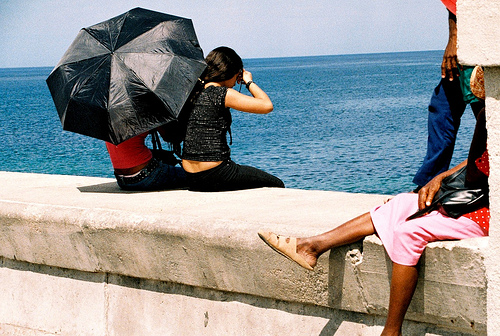Burnt by the Sun
by Orlando Luis Pardo Lazo / August 20, 2012 / No comments
Life during the Havana summer
The Havana summer is burning hot. Far from being a time for vacation, July and August are the worst time of the year to be in this city, even though international tourism (due to the ideological idyll of the European Left-wing or thanks to US university summer courses ) may disagree.

- Is it worth-while to focus on the last images and letters coming from the inside of the last living utopia on Earth? Is Cuba by now a contemporary country or just another old-fashioned delusion in the middle of Nowhere-America? A Cold-War Northtalgia maybe? Can we expect a young Rewwwolution.cu within that Ancien Régime still known as The Revolution? I would like to provoke more questions than answers.

- Orlando Luis Pardo Lazo was born in Havana City and still resides and resists there, working as a free-lance writer, photographer and blogger. He is the author of Boring Home (2009) and is the editor of the independent opinion and literary e-zine Voces.
It has hardly rained at all lately, and as a result the sun is unbearable, causing severe sunburn after only a few minutes of exposure. Worker productivity drops almost to zero. The asphalt reverberates heat as though inside an oven. The air becomes unbreathable. Sweat soaks through clothes as soon as they are put on. Children get irritable. Old people get anxious. Tropical diarrheal and respiratory epidemics make an appearance, along with the diseases caused by the plagues of insects and other carriers. It’s impossible to walk outside in the fresh air, or be on the beach during the hottest part of the day.
Furthermore, the number of people in the streets makes carrying out chores or administrative duties difficult: The lines are hellish and fights often erupt for no good reason. The police on street corners also seem more nervous, since it was during one August (in 1994) that the first mass protests against the Cuban Revolution took place. Public transport, usually terrible, now almost disappears altogether, or forgets its usual routes. Even private taxis—those old American cars known as Almendrones —are packed with people and can’t meet the increased demand.
At home, most people can’t afford the luxury of installing air conditioning units (in some cases their use has been officially limited by the State), so the sense of claustrophobia means there is nowhere to hide from the Cuban summer. Still the foreigners arrive in their touristic herds; the Cubans don’t know where to go to escape the climate.
Translation: Alex Higson





